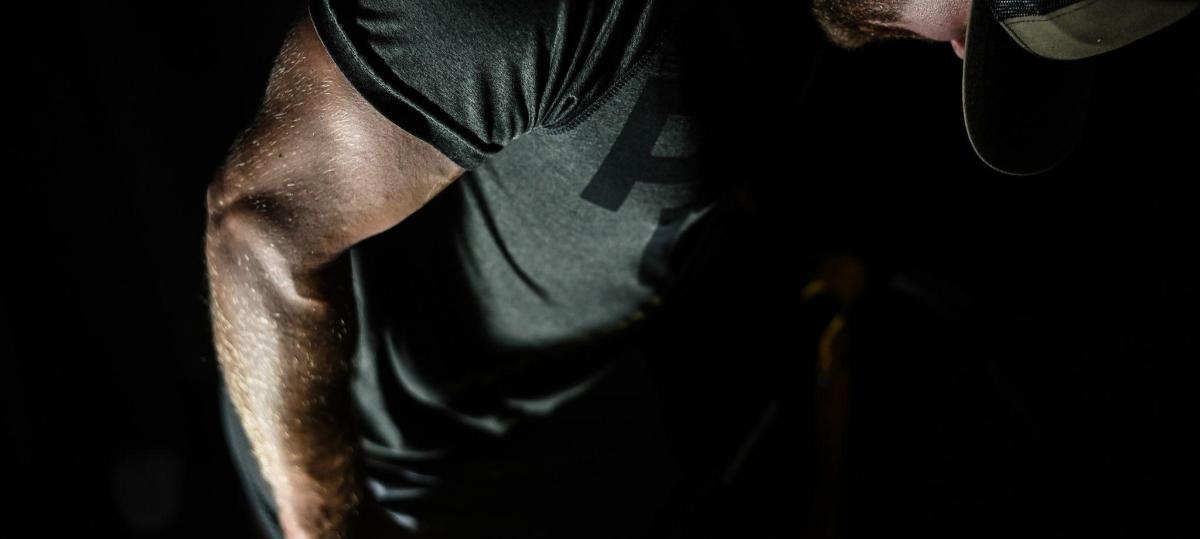The raccoon dog must be combated, says De Jager. Pointless, says the ecologist, he will never leave
/s3/static.nrc.nl/images/gn4/stripped/data132092617-c2ca42.jpg|https://images.nrc.nl/yDJ3486lMFmmuYOCrupC7bmsSmQ=/1920x/filters:no_upscale()/s3/static.nrc.nl/images/gn4/stripped/data132092617-c2ca42.jpg|https://images.nrc.nl/9hUAjfjXSo5W27xYDSY5AKpfVHk=/5760x/filters:no_upscale()/s3/static.nrc.nl/images/gn4/stripped/data132092617-c2ca42.jpg)
At the Tanukithe Japanese raccoon dog, they attribute magical powers in Japan. He could change shape, bring happiness and also have great humor and love a party. In short: a cozy animal that you would like to have.
How differently in the Netherlands is the Eurasian raccoon dog watched, an exotic who has settled in the Netherlands. It is not seen as the bringer of happiness, but of (ecological) accident and possible distributor of diseases. The Japanese and the Eurasian raccoon dog are therefore two different animals. « They even have another chromosome number, » says ecologist and predator expert Jaap Mulder.
The raccoon dog is a dog (not a bear). He has the size of a fox, but without the hunting instinct and the rapid maneuverability. The raccoon dog is slow, a bit like a tie. He ended up here because of his full fur in mixed black-brown-gray, which is very suitable for jackets and collars.
Already in 1981 the animal was first spotted in the Netherlands, after he had come from Eastern Europe where it was bred for his fur. Only since the turn of the century has he really stuck. In the northeast it appears in all major nature and water-rich areas. Last year a copy was found in a park in Amsterdam for the first time – dead -.
« The raccoon dog has really arrived, » headed Nature Today last month. « In ten to twenty years in the entire country, » it added Ad to it. This was followed by other articles. « Hunting the raccoon dog opened: » don’t belong in the Netherlands, « said a hunter at Rtl.nl. How should we deal with the raccoon dog?
Ecosystem
Jaap Mulder has been researching predators living in the Netherlands for decades. The raccoon dog has fallen under this for about twenty years. « It is not really a hunter, he is too slow for that. He screams more and sometimes bumps into a prey. »
Mice, toads, frogs and dead animals are on the menu. Sometimes he comes across, and that is why his arrival does not merely evoke enthusiasm, on a nest of endangered meadow birds. « That’s why people think he should be hunted, » says Mulder. « By the way, hunters call that » manage,
It is an exotic, it doesn’t belong here
Jager Bjorn van der Veen indeed believes that « the marten dog » should be combated in the interest of the ecosystem. « It is an exotic, it does not belong here. Rules and agreements have been made at international level. Inside, the Netherlands has a European obligation to combat invasive exotics. »
Van der Veen is Jager, « out of passion, not as a profession and it is different from people thinking 80 percent of the time of fieldwork without a gun. » He also runs a « consultancy in the field of biodiversity and fauna files ». He manages near Borger, the hunebed capital, an estate where space has been made for agriculture, recreation in the form of a campsite and nature management. For example, a strip has been laid for flowers and weeds along the edge of the agricultural land. « The hare pharmacy, » says Van der Veen.
There, he points, they will plant bushes that bear berries and other fruits. « To get the ecosystem conclusive and to ensure that there is sufficient and varied food for the animals that live here. »
The animals that live here are regularly in the way of each other and people. For example, Van der Veen is not very happy with the fox and not even with the protected tie. Of course they belong to biodiversity, « but when the balance is lost, management is necessary ». The wolf is a more extreme example. He points to a farm in the distance. « A month ago, sixty sheep were bitten by a wolf in three nights. »
/s3/static.nrc.nl/images/gn4/stripped/data131987571-739464.jpg|https://images.nrc.nl/JGlcsxoxar87d5WolmA4BZqXHv4=/1920x/filters:no_upscale()/s3/static.nrc.nl/images/gn4/stripped/data131987571-739464.jpg|https://images.nrc.nl/25DhUxmraF0u5NzMTI3c1IWUzeM=/5760x/filters:no_upscale()/s3/static.nrc.nl/images/gn4/stripped/data131987571-739464.jpg)
Photo Sake Elzinga
/s3/static.nrc.nl/images/gn4/stripped/data131987574-29ccf7.jpg|https://images.nrc.nl/clmv6h016_GDMEQwGGEe9sl_9oQ=/1920x/filters:no_upscale()/s3/static.nrc.nl/images/gn4/stripped/data131987574-29ccf7.jpg|https://images.nrc.nl/R5xv1VbN1_qVzu4a__RbiYDK3Ws=/5760x/filters:no_upscale()/s3/static.nrc.nl/images/gn4/stripped/data131987574-29ccf7.jpg)
Photo Sake Elzinga
Opportunist
The raccoon dog does not get in the way the farmers in the same way, although he sometimes wants to take some of the country. « You can call it an opportunist, you can also explain it as parasitic, » says Van der Veen. In the ecosystem on the estate he sees no room for the raccoon dog. He also specifically points to protecting the meadow birds. « To protect nature, we must do Fauna Management, which is inextricably linked to maintaining biodiversity. »
We are not going to save the meadow bird at the expense of the raccoon dog, we have to do a lot more for that
But that noise control of this exotic is with regard to Mulder exaggerated, short -sighted and meaningless. « With the strategy to make a species disappear completely from a country you have to wonder two things. One: is it possible? And two: is it necessary? At both questions the answer is currently: no. » It is typical language of civil servants and hunters, he says. « That live according to the motto: exotic must die. Although with another motive. »
In the swampy area around Westbroek (Utrecht), where the first raccoon dog has also been spotted, many meadow birds, Mulder points out. He understands that they are protected, but « it is in fact dying guidance. » Nature management, he says, is delaying the decline. And according to him, the meadow bird is over – except perhaps in nature reserves.
« The meadow bird is threatened by agriculture, not by predators. The pasture of the past, with flowers and insects, has become ‘grass falt’, there can no longer grow up. That is what the meadow bird threatens. »
Nevertheless, in the context of the protection of meadow birds, De Vos may be active, including where no meadow birds live at all. « Because he supposedly causes damage to nature, they say. How is that possible? He is part of nature himself. »
/s3/static.nrc.nl/images/gn4/stripped/data131987532-2e50ca.jpg|https://images.nrc.nl/QfztncaFS4r233e6XJ_X9T9c_mY=/1920x/filters:no_upscale()/s3/static.nrc.nl/images/gn4/stripped/data131987532-2e50ca.jpg|https://images.nrc.nl/7virr4gwiWB1jv9lyuUyU0SKfxE=/5760x/filters:no_upscale()/s3/static.nrc.nl/images/gn4/stripped/data131987532-2e50ca.jpg)
Photo Sake Elzinga
European obligation
Van der Veen only gets an effective assignment to combat the raccoon dog in very limited form. « The province that is more, I do it all myself within the narrow legal frameworks. It is a European obligation that I voluntarily carry out as a hunter. » Expenditure for this, such as for the concrete fall in the form of a tunnel where a raccoon dog catches itself by standing on a seesaw, he pays himself. « The costs quickly go towards 1,000 euros for such a fall. An allowance from the government would be neat. »
He hopes that the role of the hunter in the outskirts will be « embraced more », and that not only the « drawing table knights » will be listened to to make plans for nature conservation. « The Netherlands is out of balance. We want recreation, highways, an agricultural sector, we want everything, but that is also in conflict with each other. For people we can draw up laws and rules for that, we cannot explain to animals where and what they are allowed to eat or not. »
Another concern around the raccoon dog is the possible spread of parasites and viruses. For example the fox tapeworm. It comes, as the name suggests, especially in foxes and is deadly for people without treatment. However, the chance of infection is very low. Rabies can also be spread by the raccoon dog, although the Food and Consumer Product Safety Authority considers the chance to do so in Europe, since the virus has been eradicated throughout Western Europe.
Nevertheless, the authority describes in the Factsheet raccoon dog « The transfer of diseases » as « the most harmful effect of this invasive exotic in Europe ». And the reason that he is on the list of species that need to be combated. The fact that the raccoon dog is associated with the market in the Chinese city of Wuhan and the origin of the Corona Pandemie does not help his disease -spreading image.
Mulder shrugs. As long as the raccoon dog is not on the menu and doctors in risk areas for the fox tapeworm are paying attention, there is really not much going on in terms of this disease distribution. « The only reason to want to fight the raccoon dog is because of the strange artificial situation in which we want to keep the meadow bird. But we are not going to save it at the expense of the raccoon dog, we have to do a lot more for that. »
According to Mulder, the European obligation to combat the raccoon dog offers plenty of room to do that where it is feasible and useful, for example around meadow birds. « Because he has already found his own niche here, we will not get him away anymore. »

/s3/static.nrc.nl/wp-content/uploads/2025/05/12094428/web-1205ECOBLOGgeneve-1.jpg)
/s3/static.nrc.nl/wp-content/uploads/2025/05/12083458/web-1205ECOBLOGlula.jpg)
:format(jpeg):fill(f8f8f8,true)/s3/static.nrc.nl/taxonomy/bf9b707-commentaar-itemafbeelding-2024.png)




